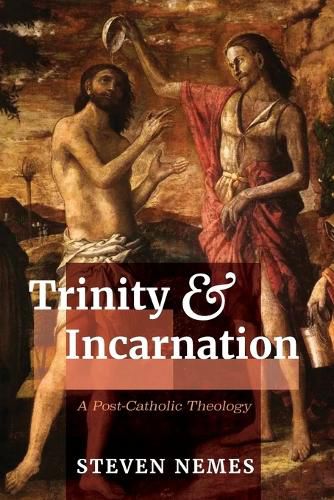Readings Newsletter
Become a Readings Member to make your shopping experience even easier.
Sign in or sign up for free!
You’re not far away from qualifying for FREE standard shipping within Australia
You’ve qualified for FREE standard shipping within Australia
The cart is loading…






This title is printed to order. This book may have been self-published. If so, we cannot guarantee the quality of the content. In the main most books will have gone through the editing process however some may not. We therefore suggest that you be aware of this before ordering this book. If in doubt check either the author or publisher’s details as we are unable to accept any returns unless they are faulty. Please contact us if you have any questions.
This book argues that the doctrine of God taken for granted in the catholic tradition (divine transcendence, creatio ex nihilo, divine simplicity) makes it impossible to give an intelligible and coherent interpretation of the verbal formulas of the catholic dogmas of Trinity and incarnation. By way of response to this apparent incoherence at the heart of the catholic theological tradition, it proposes an alternative post-catholic take on these central doctrines in the light of a qualified monistic conception of God and a "Spirit Christological" interpretation of Jesus's relation to God the Father as presented in the New Testament.
$9.00 standard shipping within Australia
FREE standard shipping within Australia for orders over $100.00
Express & International shipping calculated at checkout
This title is printed to order. This book may have been self-published. If so, we cannot guarantee the quality of the content. In the main most books will have gone through the editing process however some may not. We therefore suggest that you be aware of this before ordering this book. If in doubt check either the author or publisher’s details as we are unable to accept any returns unless they are faulty. Please contact us if you have any questions.
This book argues that the doctrine of God taken for granted in the catholic tradition (divine transcendence, creatio ex nihilo, divine simplicity) makes it impossible to give an intelligible and coherent interpretation of the verbal formulas of the catholic dogmas of Trinity and incarnation. By way of response to this apparent incoherence at the heart of the catholic theological tradition, it proposes an alternative post-catholic take on these central doctrines in the light of a qualified monistic conception of God and a "Spirit Christological" interpretation of Jesus's relation to God the Father as presented in the New Testament.